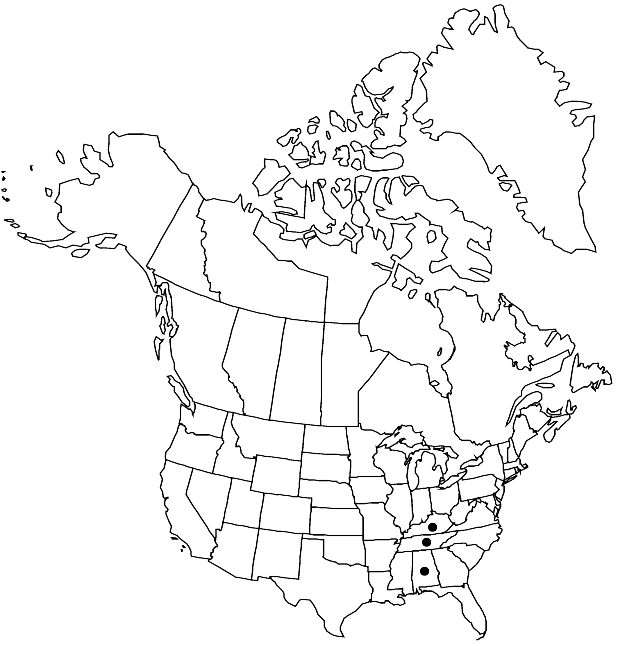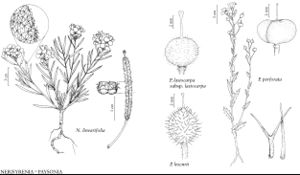Paysonia lescurii
Novon 12: 381. 2002.
Annuals; hirsute to coarsely pubescent or glabrous, trichomes simple, with branched, smaller ones. Stems erect or decumbent, 1–3 dm. Basal leaves: blade 3–7 cm × 5–20 mm, margins lyrate, deeply lobed (lateral lobes remote), abaxial surface hirsute (trichomes mostly simple), adaxial coarsely pubescent (trichomes simple, with branched, smaller ones). Cauline leaves: blade broadly oblong to ovate, 0.5–2 cm × 3–10 mm, base auriculate to sagittate, sometimes amplexicaul, margins dentate, (surfaces coarsely pubescent, trichomes simple, with branched, smaller ones, often simple ones absent distally). Fruiting pedicels divaricate, nearly straight (not expanded apically), 8–15 mm, densely pubescent (trichomes coarse, branched). Flowers: sepals (yellowish at anthesis), 3–4 × 1.5–2 mm, (outer pair slightly saccate, inner pair flat basally), apex rounded to slightly emarginate, coarsely pubescent; petals yellow, 5–7 × 3.5–4.5 mm, (gradually narrowed to base); filaments dilated basally, (2.5–3.5 mm, glandular tissue continuous, subtending filament base, surrounding attachment point of single stamens). Fruits sessile, orbicular or suborbicular (slightly longer than broad), 4–6 × 3–4 mm, (strongly latiseptate); valves coarsely, densely pubescent outside, trichomes simple, bulbous-based, mixed with branched ones, sparsely pubescent inside, trichomes branched; replum not flattened, (thick, glabrous); septum complete, (dense); ovules 4–8 per ovary; style 1.5–2 mm, glabrous; stigma expanded in dried material, same diameter as style when fresh. Seeds suborbicular (slightly longer than broad), 2–2.8 × 1.5–2 mm. 2n = 16.
Phenology: Flowering Mar–May.
Habitat: Hillsides, cedar glades, flood plains, fields, pastures
Distribution

Ala., Ky., Tenn.
Discussion
Selected References
None.
